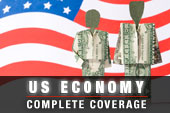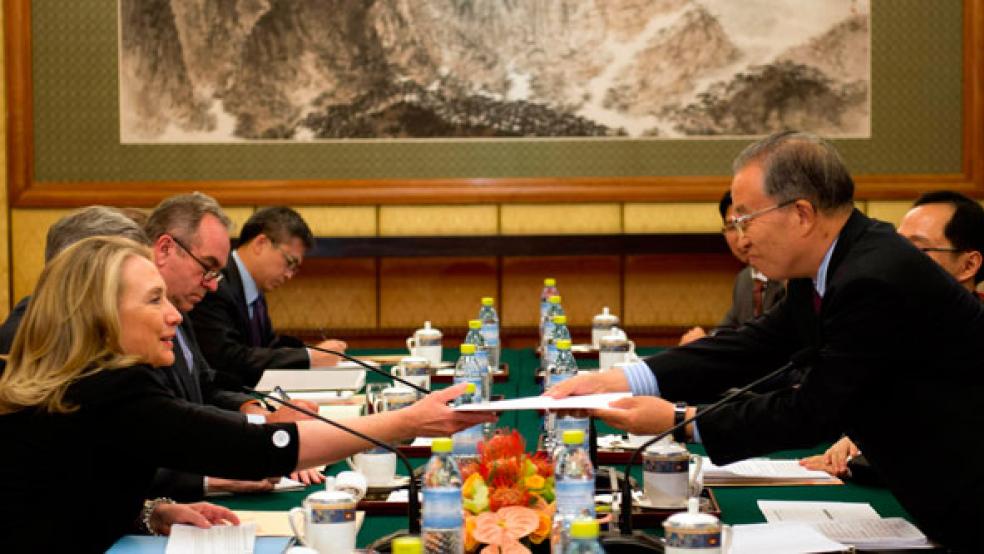America’s closest allies in Asia are wasting no time establishing new economic and political alliances that can diminish the role of the U.S. in that region. Both Japan and South Korea are setting their own courses to an extent long considered beyond their reach. If you accept the popular premise of a “post–American era,” this is what it looks like when it arrives.

Leadership changes in Japan and South Korea prompting new economic policies focused on deficit spending and demand stimulus—straight-ahead Keynesian economics. We are also likely to see foreign policies that ease tensions in the region. Not least, Seoul wants to revive something resembling the “sunshine policy” toward North Korea that Kim Dae-jung, the late South Korean president, first articulated 15 years ago.
The surprise of the week: North Korea’s young new leader, Kim Jong-un, has just gone on national television and called for an end to long-running hostilities toward the South along with a new, energetic focus on economic reform. If the North optsfor Chinese-style reform, it would transform the Northeast Asian region.
Washington should welcome these developments. But it is not clear how well the U.S. will manage a change in its long-dominant position in the region. As an economic bloc, Northeast Asia would be the world’s most powerful based on combined gross domestic product; competing with it will be more difficult because its trade networks will grow ever denser. On the foreign policy side, a region that can resolve its own problems will have less need for U.S. security protection.
On the face of it, Korea and Japan have just swerved rather dramatically rightward. Last month Japanese voters brought back Shinzo Abe, a mainstay in the conservative Liberal Democratic Party, for a second turn as prime minister. In Korea, the president-elect is Park Geun-hye, the nation’s first female leader and long a member of the right-wing Grand National Party, which she has refashioned the New Frontier Party.
Both of these figures have interesting bloodlines. Abe is the grandson of Nobusuke Kishi, a wartime cabinet minister, an accused war criminal, prime minister during the late–1950s, and a corrupt backroom power among Liberal Democrats for the remainder of his life. Park is the daughter of Park Chung-hee, who led a military coup in 1961 and ruled Korea until his intelligence chief assassinated him at the dinner table 18 years later.
You would think leaders of this stripe—ardently nationalist, favorable to big business and heavy industry—would stand for a tough line toward China, an even tougher line toward North Korea, and economic policies that reflect the neoliberal orthodoxies Americans still consider fashionable.
Between Seoul and Tokyo, Park and Abe seem unlikely candidates to resolve conflicting claims over a pile of rocks in the Sea of Japan—the Dokdo Islands to Koreans, Takeshima to the Japanese—and longstanding differences as to the record of Japan’s colonization of Korea from 1910 until 1945.
These are perfectly plausible assumptions, except that they are already proving wrong.
Even before his election Abe had announced a $118 billion stimulus package intended to finance public works, create jobs, and spur investment. The Bank of Japan, which has suffered a rough wrestling match with Abe in recent days, will finance the plan with its printing presses. The Bank of Japan will also (and reluctantly) raise its inflation target to 2 percent.
The early results are encouraging. The yen is weakening (and exports will thus rise). The dollar has already hit a two and a half year high against the Japanese currency. This could prove a burden to American exporters contributing to the U.S. recovery.
But “Abenomics,” as some call the prime minister’s strategy, is dicey. Japan already carries a gross debt equivalent to 200 percent of gross domestic product—the world’s highest ratio. Abe is unfazed. “It has to be different from the traditional methods,” he said of his economic policy on Japanese television. “Different” is too mild a term. Heretically enough, Abe has effectively signaled his low regard for the neoliberal fiction of central-bank independence, and one could not applaud more vigorously.
It has been interesting to watch Abe pre– and post-election as he addressed foreign policy questions. He leaned on his rigorously nationalist reputation during the campaign, laying strong claim to a group of islands Tokyo and Beijing dispute, criticizing South Korea for a similar maritime claim, and denouncing North Korea’s launch of a long-range ballistic missile last month.
Instantly after the election he shifted ground, stressing the prospects for cooperation with both of Japan’s neighbors. He did the same thing when he was first elected in 2006. He breathed fire on the China question back then; three weeks after taking office he was in Beijing making nice. Abe, plainly, is a master of the Nixon-in-China strategy: Cultivate strong conservative credentials and innovate on difficult diplomatic and security questions.
You find a variation on the theme in Seoul. Park has promised to reduce the influence of the very industrial combines—the famous chaebol—that her father relied on to produce Korea’s “miracle” years. She wants to make more room in the economy for small businesses and spend from the public treasury to bring along those Koreans the miracle left behind. Park also proposes to restart long-moribund talks North Korea.
As interesting as these events are for the Japanese and the Koreans, they are important for Americans, too.
The Asian financial crisis back in the late–1990s saw the heavy sway of American-style neoliberalism in countries (including Korea and Japan) that were suddenly in trouble. The ideological brawls proliferated among Asian bureaucrats, visiting Treasury officials, and the multilateral organizations. In many cases “market fundamentalism,” as a Japanese official termed Western policy prescriptions, won the day.
Abe and Park, two credentialed conservatives, change that paradigm. Their policies, so far as they are realized, respond to the conditions that surround them, not someone else’s imported ideological axe.
The same is true with regard to the region’s security. A decade ago, Bush administration officials such as John Bolton, Washington’s obstreperous U.N. ambassador, called for aggressive action against North Korea. When the Chinese intercepted a U.S. spy plane in April 2001, mistrust and suspicion prevailed, although the incident was handled so that neither country lost face.
We can see now that Asia’s problems are Asian and require Asian solutions. Washington is simply not equipped to intervene indisputes that involve centuries of history, pride, and tradition. It is not what Asia needs or wants. If talks with North Korea recommence, Beijing and Seoul will lead them, not Washington.
The Obama administration appears to understand the moment better than one would have thought. After Pyongyang’s missile test, Washington’s population of hawks on North Korea began their familiar drone: Isolate Pyongyang, more and tougher sanctions. The White House’s formal response was so muted as to be nearly nonexistent. “I think we still have to assess just exactly what happened here,” Defense Secretary Leon Panetta said on CNN.
What could be truer as Americans look across the Pacific?



